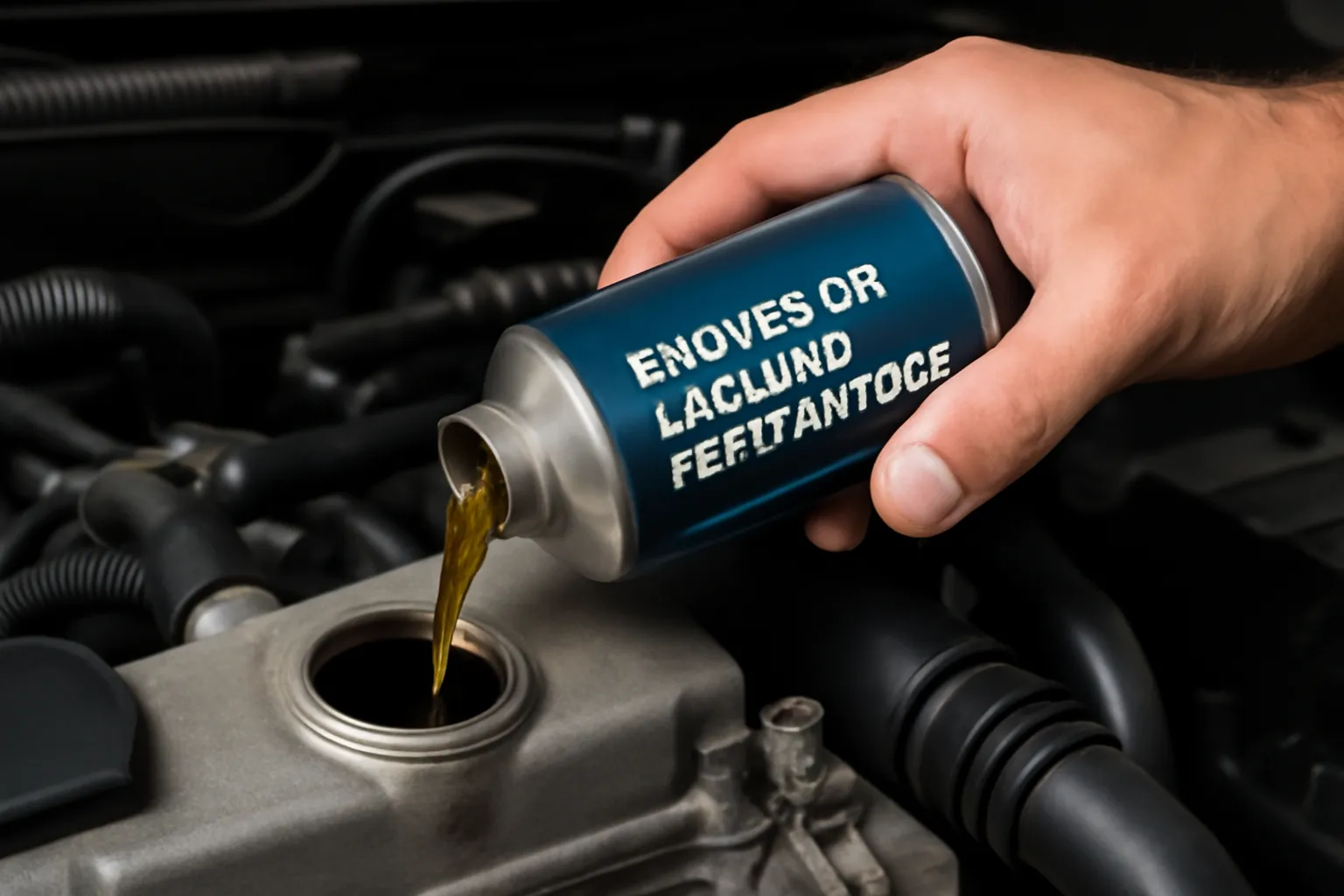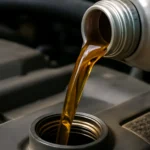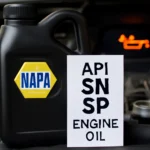Engine oil leakage is a common issue that many car owners face. It can lead to reduced engine performance, higher maintenance costs, and, in severe cases, engine damage. Fortunately, advancements in automotive care have led to the development of engine oil leakage prevention agents, which claim to reduce or eliminate oil leaks in your vehicle. In this article, we will explore how these agents work, their effectiveness, possible side effects, and how to properly use them.
What is an Engine Oil Leakage Prevention Agent?
An engine oil leakage prevention agent is a chemical additive that can be mixed with the engine oil to help seal minor leaks and prevent new ones from forming. These agents are specifically designed to swell and soften the rubber seals and gaskets in your engine, making them more flexible and capable of sealing tiny cracks and gaps. Most of these products contain ingredients that are safe for the engine while providing temporary or long-lasting solutions to oil leakage problems.
How Does an Engine Oil Leakage Prevention Agent Work?
These agents work by interacting with the engine’s seals and gaskets. Over time, the rubber seals in an engine can become brittle or cracked due to the heat and pressure they are subjected to. When you add an oil leakage prevention agent to your engine oil, the additive works to rejuvenate these seals. It causes them to expand and become more pliable, filling in any tiny gaps or cracks that might be causing oil to escape.
Some products also include compounds that can bind to small leaks in the engine, forming a seal that effectively prevents further oil loss. As a result, the engine can run more efficiently, and the risk of damage due to low oil levels is minimized.
Benefits of Using Engine Oil Leakage Prevention Agents
-
Cost-Effective Instead of spending hundreds of dollars on engine repairs or replacement of seals, using a leakage prevention agent can save you a significant amount of money in the short term.
-
Easy to Use These agents are typically simple to apply and require no special skills. You simply add them to the engine oil, and they begin working immediately.
-
Preventative Care These agents are excellent for maintaining the health of your engine, especially in older vehicles or those with minor leakage issues.
-
Environmentally Friendly By preventing oil leaks, you are reducing the chances of oil leakage onto the road or into the environment, helping to reduce pollution.
When to Use an Engine Oil Leakage Prevention Agent?
It’s advisable to use a leakage prevention agent when you notice small oil puddles under your car or when your engine oil level is frequently low. If you’re unsure whether the oil leakage is minor or major, it’s a good idea to consult a mechanic before relying solely on the additive. It can be particularly helpful in cases where the oil leakage is due to aging seals rather than severe engine damage.
👉 Learn more about engine oil leakage prevention agents 👈
Side Effects of Engine Oil Leakage Prevention Agents
While these products are generally safe, there are some potential side effects that vehicle owners should be aware of. It’s important to remember that these additives are often temporary solutions and may not fix the underlying problem permanently.
Possible Side Effects:
-
Engine Sludge Overuse of oil leakage prevention agents may lead to the build-up of sludge in the engine. This can occur when the additive combines with the engine oil and creates a thick substance that clogs the oil passages.
-
Reduced Effectiveness Over Time Some agents may lose their effectiveness after several oil changes. This means that while they may work in the short term, they may need to be reapplied if the leakage persists.
-
Damage to Seals If the additive is not used correctly, or if the engine has a more serious issue than just worn seals, it could potentially cause further damage to the engine’s seals.
-
Clogging of Filters In rare cases, the particles in the leakage prevention agent can clog the engine’s oil filter, leading to poor oil circulation.
How to Minimize Side Effects:
-
Always follow the manufacturer’s instructions on how much product to use.
-
If the oil leak is substantial or caused by a major mechanical issue, it’s best to seek professional repair.
-
Use leakage prevention agents only as a temporary solution and not as a long-term fix for underlying engine problems.
👉 Check for side effects and precautions 👈
Recommended Engine Oil Leakage Prevention Agents
Choosing the right engine oil leakage prevention agent is essential to ensure the best results. Here are some of the most highly recommended products in the market:
1. Bar’s Leaks Engine Oil Stop Leak
Bar’s Leaks is one of the most trusted names in engine additives. Their Engine Oil Stop Leak product is designed to stop leaks without the need for expensive repairs. It is compatible with all types of engine oils and works well in both older and newer vehicles.
2. Lucas Oil Oil Stop Leak
Lucas Oil is a well-known brand in the automotive industry, and their Oil Stop Leak formula is designed to swell and soften seals, reducing leaks and preventing further oil loss. It’s highly praised for its effectiveness in reducing oil consumption and keeping engines running smoothly.
3. BlueDevil Oil Stop Leak
BlueDevil is another top contender that offers a high-quality oil stop leak product. This formula works to restore the seals in your engine, providing a cost-effective solution for minor leaks. It’s designed to be added directly to the engine oil without requiring an oil change.
4. STP Oil Stop Leak
STP’s Oil Stop Leak is another affordable solution for engine oil leakage. This product is easy to use and effective for sealing small leaks, especially in vehicles with high mileage. It works by revitalizing seals and preventing new leaks from forming.
5. Rislone High Mileage Engine Oil Stop Leak
For high-mileage cars, Rislone’s Oil Stop Leak is highly effective. It can fix leaks caused by aging seals, which are common in older vehicles. It’s easy to apply and has a solid reputation for working well in preventing oil leaks.
👉 Explore more recommended products 👈
Conclusion
Engine oil leakage is a problem that no car owner wants to deal with, but using a high-quality engine oil leakage prevention agent can help alleviate the issue without requiring costly repairs. These agents work by restoring flexibility to worn seals and preventing new leaks from forming. However, it’s essential to use these products as a temporary solution and ensure that they are applied correctly. While the benefits are clear, it’s important to be aware of possible side effects such as engine sludge and clogged filters.
By choosing the right engine oil leakage prevention agent and following the instructions carefully, you can extend the life of your vehicle’s engine and reduce the chances of costly damage.
“An ounce of prevention is worth a pound of cure” – Benjamin Franklin. This timeless wisdom holds true for engine care as well, where a small investment in a leakage prevention agent can save you significant amounts in the long run.






